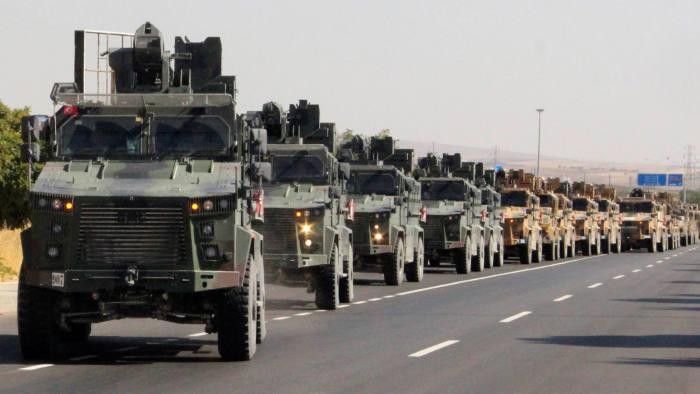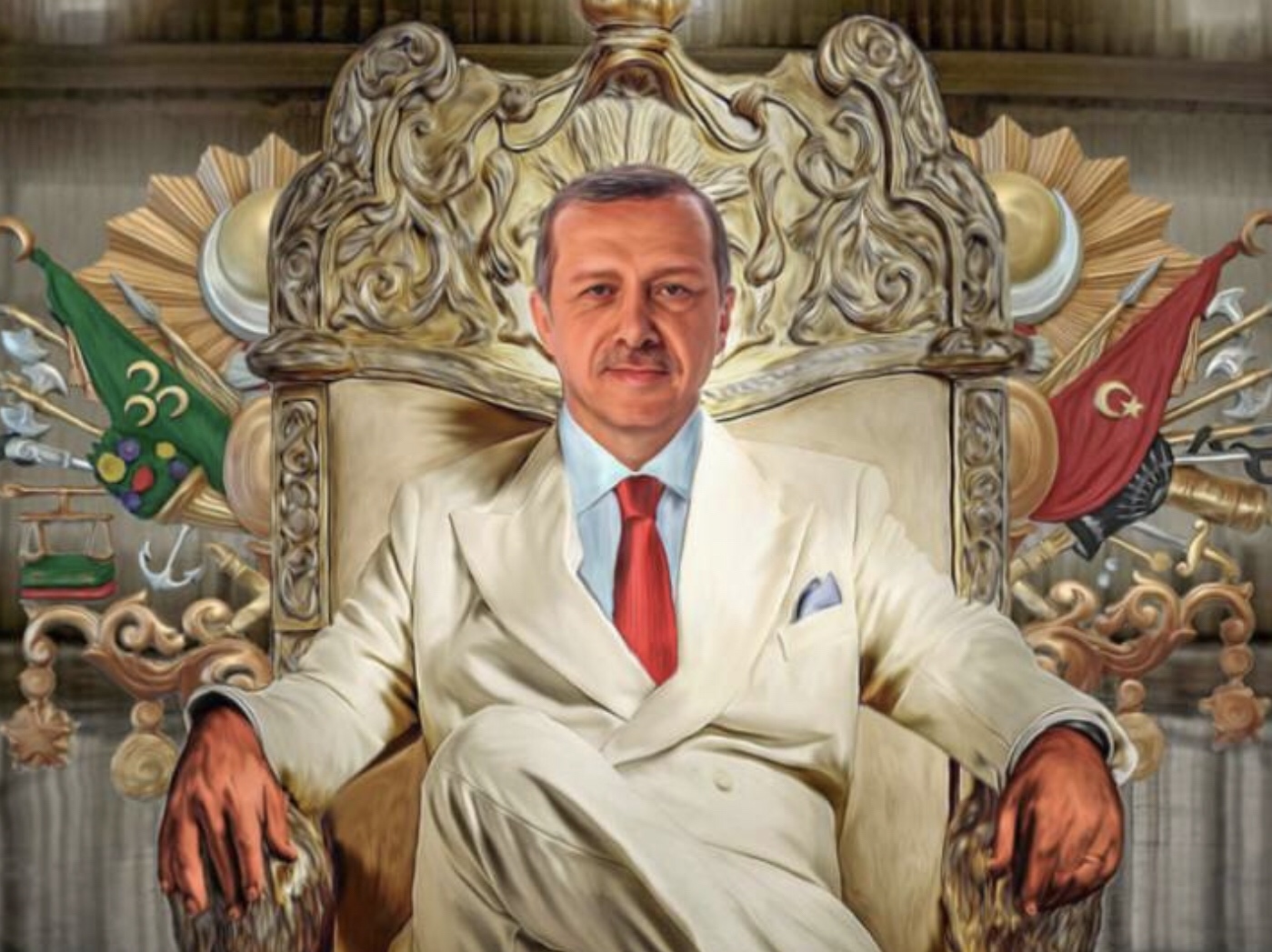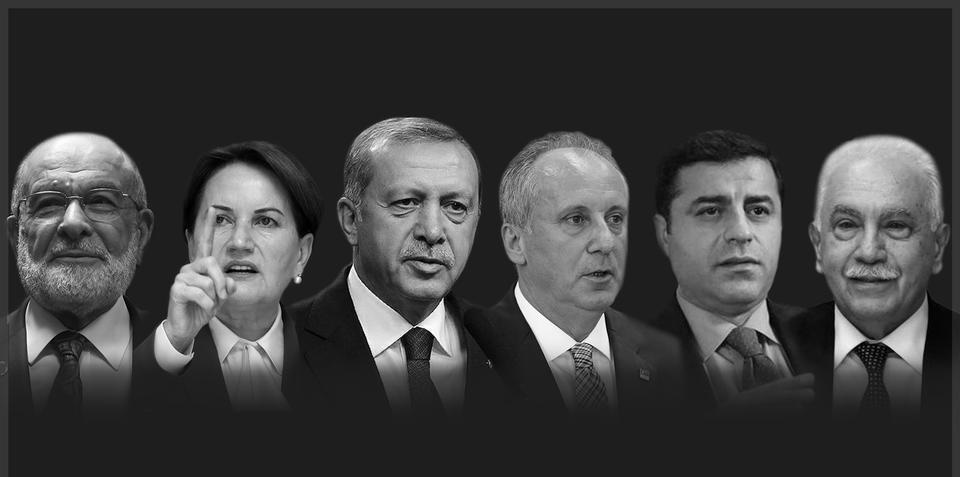Events have moved swiftly since the Turkey-led Operation Spring Peace incursion into northern Syria in early October. The operation’s objective is to clear both the Islamic State (IS) and the Kurdish People’s Protection Units (or YPG) ‘terrorists’ from a ‘safe zone’ extending roughly 30 kilometres from Turkey’s border.
Many argued that the operation became possible as a result of a ‘green light’ given by US President Trump in a telephone call to Turkish President Erdogan, which agreed the withdrawal of US troops from the area. The precise form this withdrawal was meant to take has been mired in confusion, and at the time of writing US forces are returning to Syria from the Kurdistan Region of Iraq (KRI) in order – it is said – to protect Syria’s relatively insignificant and depleted gas and oil fields well to the south of the Turkish-Syria border zone. The facilities at these fields have been further damaged by US bombing that was carried out in the struggle against IS.
To the surprise of some – including this author – within a week of the start of the Turkish operation the US and Turkey agreed a five-day ceasefire. This obliged the YPG to withdraw from the region, which it bitterly agreed to do. Even so, skirmishes between Turkey-backed forces and the YPG have continued, with each side accusing the other of breaching the ceasefire. Although the agreement, and the Turkish operation, was meant to apply only to YPG fighters, around two hundred thousand people – mainly Kurds – have fled the region, heading either southwards or towards the KRI. There are many credible reports of instances of brutality, looting, and intimidation against the Kurdish population by the Syrian National Army (SNA), an assortment of sometimes unsavoury groups sponsored by Turkey and forming part of its invasion force. This has led to allegations of a Turkey-backed campaign of ‘ethnic cleansing’ of the region’s Kurds.

These allegations are given further sustenance by Ankara’s declared intention to repatriate many of the more than three million Syrians who have fled to Turkey since the Syrian conflict began. Most of these do not hail from the ‘safe zone’, and are unlikely to voluntarily return to a still violence-ridden and physically devastated country.
There are reports that Turkey has been forcibly repatriating unwanted Syrians, whose presence in such large numbers in their country is increasingly resented by the host population.
Turkey’s agreements with the US were soon followed by an Erdogan-Putin agreement at Sochi. This agreement too has been the subject of differing interpretations and has been accompanied by some confusion and much speculation. It confirmed Russia’s support of Turkey’s ‘safe zone’, gave Russian forces a role in monitoring the implementation of the ‘safe zone’ and the YPG’s withdrawal from it, and handed to Syrian forces the responsibility for the areas beyond the ‘safe zone’ and on the Syrian border with Turkey. Russian forces have began to arrive in the region, and some Syrian forces have moved up to the border of the ‘safe zone’.
Much of the commentary on these events has been framed in terms of ‘winners’ and ‘losers’. The Kurds are widely regarded as having lost out. The YPG has been forced by both Washington and Moscow to accept a Turkish takeover of much of the area they have controlled hitherto, their experiment in autonomous governance – which was generally effective, stabilising, and progressive by Syria’s and the wider region’s standards – has been brought to a sad end, and many Kurds have decided to flee the area.
The sense of betrayal at the hands of the US in particular is palpable. But the US too has been dubbed a loser, by dishonouring itself – and its soldiers – by deserting its YPG allies, and by caving in to Erdogan’s assertiveness. Its regional influence is regarded as having been supplanted by that of Russia. Washington has appeared chaotic, unreliable, and weak. Turkey on the other hand has been deemed a winner. Erdogan has faced down the US, asserted Turkish power in Syria, inflicted a defeat on its Kurdish enemies, and is benefitting from intense nationalistic fervour at home. Moscow too is widely seen as having augmented its influence in the region.
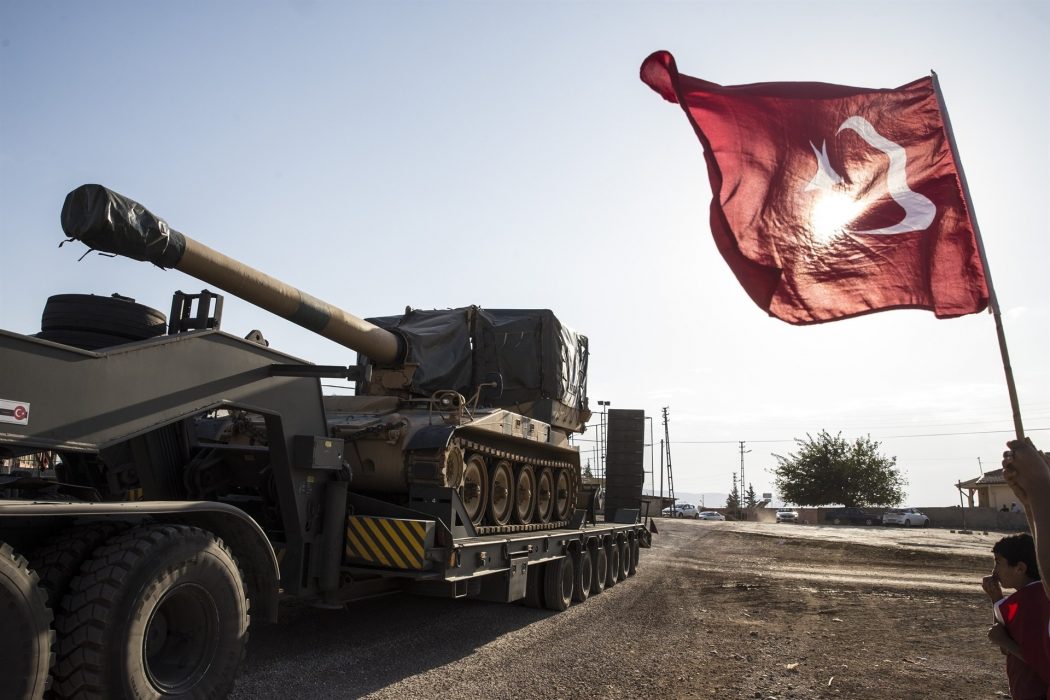
It has inserted a wedge between Turkey and its NATO allies, replaced the US as the chief external actor in the region, and in effect obliged Ankara to desert its erstwhile SNA allies in Idlib, and possibly Afrin too. This last has been one of the main objectives of its dependent ally in Damascus, and Moscow hopes it might lay the foundation for a reconciliation between Damascus and Ankara.
However, the Syrian conflict has some time – possibly a long time – to run yet. The game is far from over, and the fluidity and complexity of the Syrian situation should caution against any rush to judgment. For example, Moscow’s supposed diplomatic coup has upset Damascus (and Tehran) as it appears to legitimise a Turkish military presence on Syrian territory. It is not inconceivable that clashes could occur between Syrian and Turkish or Turkish-backed forces along the ‘safe zone’ border, and sooner rather than later. It is similarly not inconceivable that Turkey will engage in ‘hot pursuit’ of YPG forces beyond the agreed ‘safe zone’. In due course Damascus will also want to expel the often Turkey-backed opposition forces in Idlib and Afrin.
The extent to which Ankara will be willing to stand aside and let this unfold is yet to be revealed. Moscow will struggle to persuade Assad that he should restore relations with a Turkish government that has led the way in opposing his rule, sponsored the armed opposition to his regime, and that in any case has long been suspected of irredentism towards his country’s borders. Tehran will lean towards Damascus. Should the US exit from Syria prove enduring, then Moscow could find itself burdened with the task of Syria’s reconstruction. A Turkish role will be a requisite, but this might require an involvement in Syrian affairs, and perhaps a continued Turkish presence on Syrian territory, that will not sit at all comfortably with Damascus.
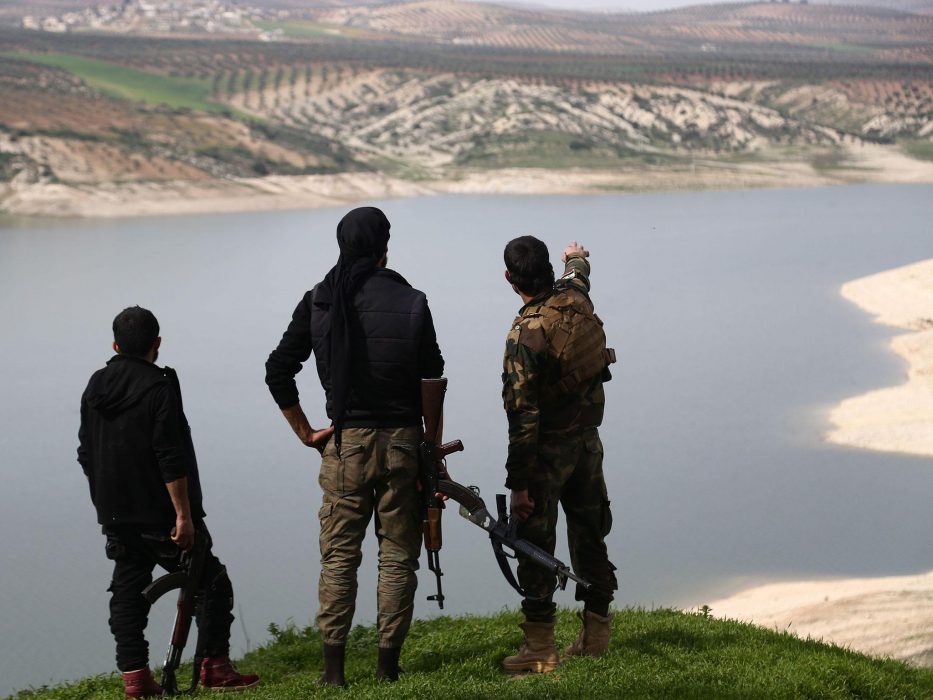
That the YPG has lost ground is clear, but again the future is uncertain. That its Rojava experiment could prosper over time was always a dubious proposition. It would have required either long-term US protection, which was never likely, or an equally unlikely Turkish and Syrian acquiescence. However, the YPG has fought gallantly against Assad’s foes, albeit for reasons of its own, and has maintained a dialogue with both Damascus and Moscow throughout the conflict and that even predates it. Unless Damascus chooses to confront the YPG militarily – which would again pose a major headache for Moscow – it is possible that a role might be found for the YPG alongside Syrian and/or Russian forces.
In any case, quite how the YPG is to be kept away from the Turkish border over the longer term remains unclear. It is also conceivable that cooperation between the YPG and any residual US force will be maintained. Furthermore, the Kurdish struggle in Turkey and Syria will not end any time soon and cannot be defeated militarily, even if it can be quietened for a while. The issue remains, and the next generation of fighters are now being given all the grounds they might want for a continuation of the struggle.
Washington’s future engagement in Syria is particularly difficult to call, given the unpredictable nature of US politics at the moment. The areas proximate to the energy fields to where US forces are now heading – for surely the most crass of reasons – are believed to be populated by IS sleeper cells. Furthermore, as the Syrian regime expands its presence throughout the country and tightens its grip, it is likely to regenerate precisely those conditions that brought about opposition to it in the first place. In other words, Syria is unlikely to quieten down any time soon, and US forces could find themselves in the eye of the storm.
Ankara’s recent ‘victories’ are highly likely to run into the sand. In addition to the headaches posed by the YPG, by the demands of Syrian reconstruction, by its tattered relationship with Damascus, by its desire to return millions of Syrian refugees, and by a possible reignition of the conflict between Damascus and its opponents, it may also face a backlash from those often nasty SNA factions that it looks set to abandon.
Furthermore, and notwithstanding the mantra that Turkey is an important NATO ally, its reputation amongst those allies is now seriously damaged. In the US, even amongst Trump’s erstwhile supporters, anger against Erdogan has been building for years, fed by – among other things – the behaviour of his bodyguards in DC, the detention of Pastor Brunson, the harassment of US embassy staff, the Halkbank/Iran sanctions busting scandal, the purchase of S400, and, in Syria, Turkey’s alleged backing of jihadis, and its foot-dragging approach to the US-led war against IS. Erdogan is currently doing his best to make matters worse by seeking the extradition from the US of YPG leader and SDF Commander Mazloum Abdi. Turkey’s interest in acquiring Russia’s advanced SU-35 fighter jet is adding further fuel to the fire. Smarting from its embarrassment at Trump’s alleged appeasement of Erdogan, there is now a Congressional initiative to recognise the Armenian genocide, and talk of charging Erdogan with war crimes.
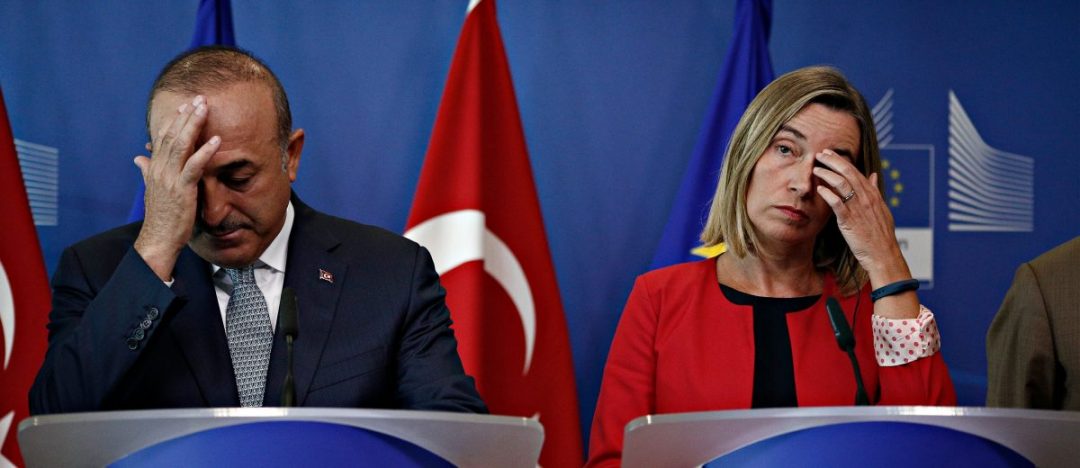
In Europe, where pro-Kurdish sentiment is undoubtedly growing, France, Germany and even the usually quiescent (where Turkey is concerned) UK, have issued a joint call for a withdrawal of Turkish forces from Syria. Again, Erdogan is doing his best to make matters worse by entering into a war of words with President Macron of France and initiating legal proceedings against the French journal Le Point on the grounds of ‘insulting the President’ in light of its condemnation of Turkey’s actions in Syria. Worse, he has again threatened to send millions of Syrian refugees towards Europe if it persists in its critical stance towards Turkey.
Frustration with Turkey has been mounting in Europe too, over many years and for many reasons – it wasn’t so long ago that the Netherlands withdrew its ambassador from the country, a remarkable action to take against a NATO ally. Unless one assumes that Turkey’s NATO membership is written in biblical tablets of stone or that it is for now and for ever compatible with anything that Turkey might choose to do, Turkey’s alliance relationships are in deep trouble.
And this, finally, brings us back to the YPG – and, by association, perhaps the PKK too. Many in Washington feel dishonoured by what they see as Trump’s betrayal of the US’s steadfast Kurdish allies in the struggle against IS. Their anger at Turkey is giving space and impetus to a growing sympathy with the Kurdish cause, confused though this sentiment might sometimes be. The Kurdistan Regional Government (KRG), at odds though it is with the PKK/YPG, is also frequently seen as a more steadfast and reliable ally than Baghdad. In Europe there are growing calls to delist the PKK as a terrorist organisation. It is unlikely to happen soon, if at all, but there can be little doubt that the Kurdish ‘cause’ is now more widely championed than ever before, and Turkey’s value as an ally more universally denigrated. Let us not yet conclude that Turkey has ‘won’ and ‘the Kurds’ have ‘lost’.
[authorbox authorid=”32″ ]
